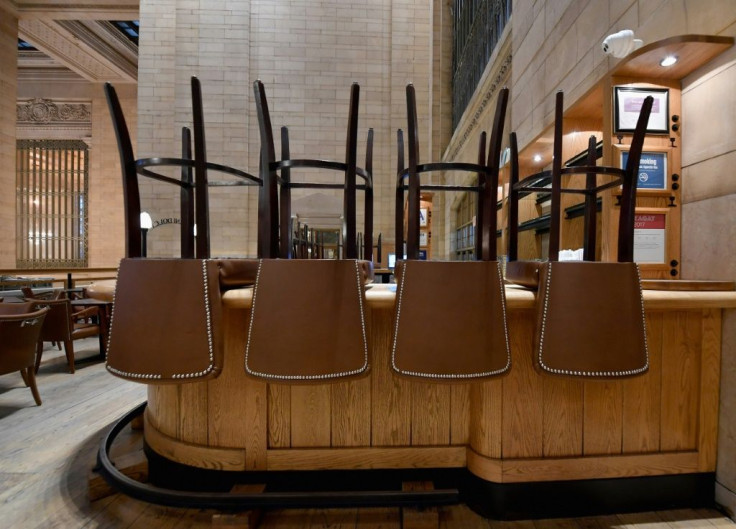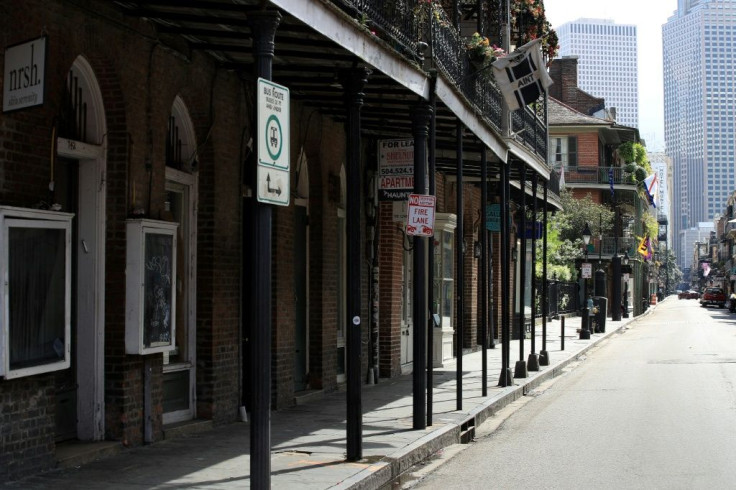Giant Small Business Program Poses Herculean Challenge For US Banks
After laying off almost all of his workforce across seven stores, Legacy Toys owner Brad Ruoho sees a path to rehiring them only if the new $350 billion US small business lending program performs as promised.
Passage of the giant US relief package that includes the program "enabled us to feel more confident about bringing on extra help," said Ruoho, whose Minnesota-based chain has already re-hired 10 of 75 employees to support a growing e-commerce push.
Ramping up the massive program will be a herculean task for the Small Business Administration (SBA) and for the nation's banks during a period of skyrocketing unemployment.
Signs were mixed by Friday afternoon, with the biggest US banks at various stages of rolling out their programs and the status of many lenders changing by the minute.
Questions cropped up on everything from bank money-laundering rules to how fast loans could be issued from lenders not previously part of the SBA programs. On top of that were nitty-gritty details about forms and documentation.

The SBA on Twitter pointed to huge interest in the program -- with more than $2 billion in loans around 1900 GMT -- but it wasn't clear how quickly those funds would flow to companies that face immediate cashflow problems.
Jim Friedlander, president of New York-based Arrangements Abroad, which organizes vacation packages, fears the funds may not arrive in time for him to avoid laying off some of his 32 employees.
"The government, to its credit, is trying to do something fast and big, and you do want to be careful to avoid fraud," Friedlander said.
"But it is helpful to have clear information so you don't have the expectation that the money is going to come right away."

A linchpin of the newly enacted US relief bill is a $349 billion Paycheck Protection Program, which provides forgivable loans to small businesses that retain their workers or rehire laid-off employees by June 30.
The funds can be used to finance eight weeks of payroll or rent and are designed to allow small businesses such as restaurants, stores and hair salons to maintain their employees while remaining shuttered for public health.
Small businesses, which represent a segment of the economy with less access to private capital than larger companies, have received bipartisan support under the program, which is just one element of the $2 trillion relief bill signed into law last week by Trump.
Experts on small business finance have lauded the program's intentions, but expressed skepticism that Washington would be able to execute as quickly as needed.
They question whether the SBA, which will guarantee the loans, and the private US banking industry have enough bandwidth given the scale of need.
At a press briefing Thursday night, US Treasury Secretary Steven Mnuchin said the government had doubled the interest rates on the loans to one percent following complaints from small banks and insisted the program would be "up and running tomorrow."

But just what that means remains unclear.
As of 1800 GMT, Bank of America had processed nearly 60,000 applications.
JPMorgan Chase, which had earlier said it did not expect to launch on Friday, also began taking information from clients, while Wells Fargo said it was "working as quickly as possible to be ready."
An unknown is how much the SBA will streamline the normally onerous due diligence process that can take weeks, a banking source said.
"The details are happening in real time," said Jeanne Crain, chief executive of Bremer Bank, a St. Paul, Minnesota lender. "They are writing this as the clock ticks and we're right there behind them."
Crain said there was broad interest in the program, with some 600 inquiries in the Minneapolis-St. Paul area and a similar number in the rural parts of the state.
On Thursday, Crain still was not sure Bremer had a final lending form from the SBA for the paycheck protection program.
By Friday morning, the bank was more certain it had the final form, but a spokeswoman said that they had no means to submit it.
A bit later, she wrote back to say that the bank did have an electronic link, "so as of 9:03 am we have a mechanism to turn in the applications to the SBA."
At Legacy Toys, Ruoho has been encouraged at the consumer hunger for toys as he quickly pivots to e-commerce, a domain the company has suddenly embraced as a revenue stream after previously viewing it as more of a long-term prospect.
Each day, Ruoho and a few other employees prepare packages at the company's Mall of America store for UPS delivery.
The mall itself is "kind of creepy," he said.
"The waterfalls are all drained." Ruoho added. "There's nobody here."
At Arrangements Abroad, staff are working with clients to postpone or cancel trips. Unlike Legacy Toys, which already has an SBA loan, the tourism company is seeking its first loan under an agency program.
Employees are also working to set up the 2022 schedule for a hopefully sunnier time.
"This is an opportunity to get the best hotels and the best boats for the best rates," Friedlander said.
© Copyright AFP 2024. All rights reserved.





















